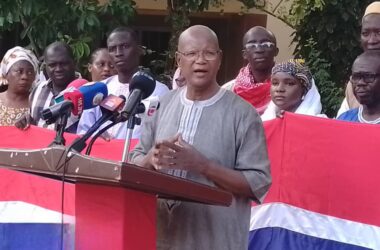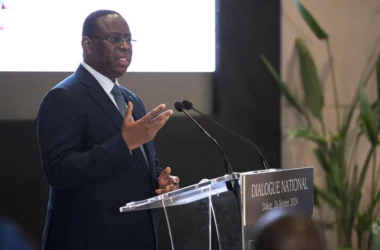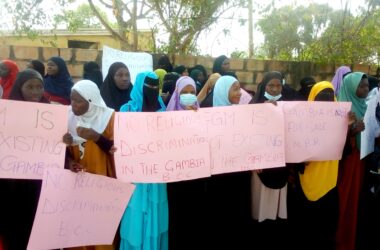By Kemo Cham
In a joint statement issued on Saturday, the heads of two agencies under the United Nations have pledged to work towards ending the controversial practice of Female Genital Mutilation/Cutting (FGM/C).
The joint statement which was released to mark the International Day Against Female Genital Mutilation/Cutting, also conveyed a message of the agencies’ intention to advance gender equality and improve sexual and reproductive health.
“The practice [FGM/C] persists because it is sustained by social perceptions, including that girls and their families will face shame, social exclusion and diminished marriage prospects if they forego cutting,” the agency heads, Thoraya Obaid and Ann M. Veneman, Executive Directors of the UN Population Fund (UNFPA) and the UN Children’s Fund (UNICEF) respectively, stated. “These perceptions can, and must, change.”
FGM/C is widely practiced in West Africa, in countries including Gambia, Senegal and Mali. It involves the removal, either partial or total, of the external genitalia – influenced mainly by cultural values. There are occasional claims of religious issues as well. Campaigners against the practice say it is cruel as it causes severe pain and sometimes resulting in prolonged bleeding, infection, infertility and even death.
‘‘While there has been progress in reducing the incidence of female genital mutilation or cutting in several countries, there are still three million girls who continue to be at risk each year,’’ the officials said in their statement, urging redoubling of efforts to end this ‘‘harmful’’ practice. ‘‘The progress made in recent years in reducing FGM/C is largely because communities and families are taking action and calling for change.’’
In February 2008, 10 entities within the UN launched the Inter-agency Statement, setting out the elements to support the overall abandonment of this practice in one generation, with demonstrated success in many countries by 2015, the statement went on. It added that the heads of UNFPA and UNICEF noted that success in reducing the incidence in several countries where it was once highly prevalent has occurred as a result of culturally sensitive engagement with local communities, “encouraging change from within.” This is an approach the agencies intend to pursue.
They also pointed out that where communities have chosen to make public declarations against the practice, for example in Senegal, declines of up to 65 per cent have been recorded.
But on a sad note, the statement said that despite these recorded successes, an estimated 120 to 140 million women have been subject to the ‘‘harmful and dangerous’’ practice — which poses ‘‘immediate and long-term consequences for the health of women and girls, and violates their human rights.’’ The statement added that 3 million girls continue to be at risk each year. UNFPA, UNICEF and their partners, it therefore announced, are supporting communities to end the FGM/C, including by engaging parliamentarians, media, traditional communicators, women lawyers, medical associations, religious leaders and scholars to speak out against the practice.
Warning: Trying to access array offset on value of type null in /srv/users/jollofnews/apps/jollofnews/public/wp-content/themes/wpzoom-prime-news/functions/widgets/carousel.php on line 39











